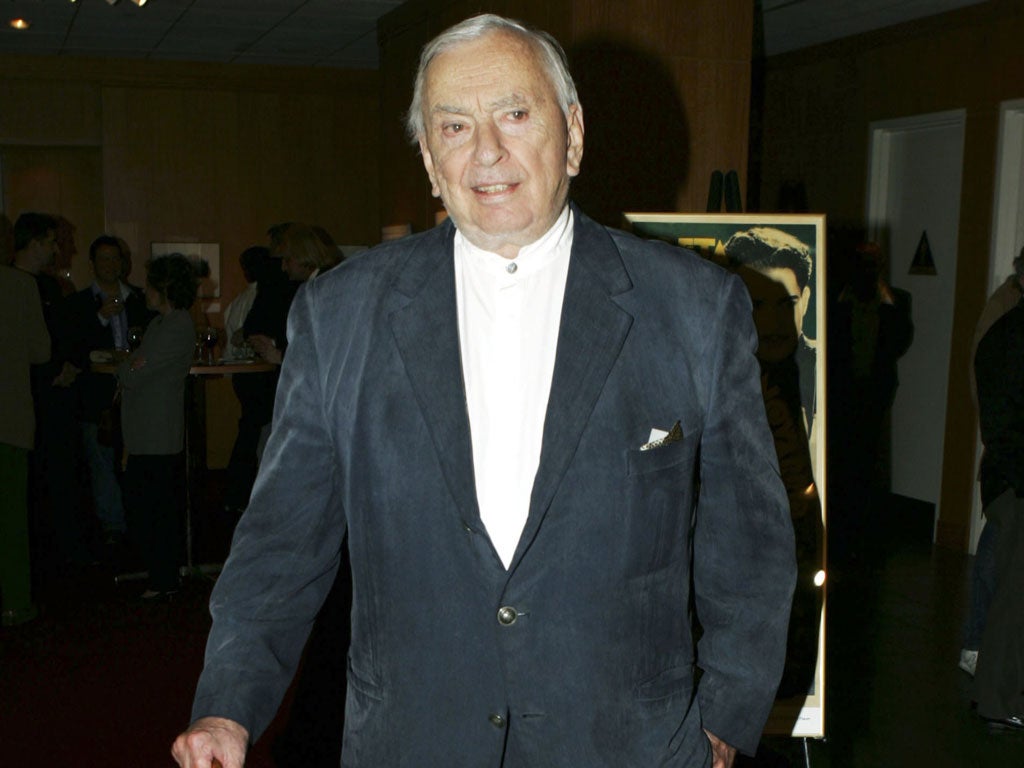DJ Taylor: If only Gore Vidal had stood for Grimsby
Britain has always been hospitable towards people born with silver spoons in their mouths yet keen to represent the interests of the masses

Only five days have passed since Gore Vidal's death, and already one feels like calling for a moratorium on descriptions of him as "the last of his generation" or a "unique voice" in contemporary transatlantic culture. In fact, Vidal belonged to a distinctive but not particularly uncommon category: the well-bred young man of scintillating brilliance who tries to fashion a career for himself in radical politics. Vidal's difficulty was that the context in which this fashioning took place was late 20th-century America, an environment not only increasingly hostile to left-wing thought but also to patrician entitlement and, you sometimes suspect, intelligence per se.
Naturally, the most compelling evidence for this shift in political sensibility tends to come from the Republican Party, which 40 years ago was full of Nixons and Rockefellers and is now awash with Romneys and Santorums, but the Democrats, too, are expert practitioners of the art of rendering everything fat, fine and nuance-free. Its effect on Vidal was doubly unfortunate. Not only did it marginalise him, but it soured an already waspish tone and turned him into an aphorist, a political gadfly rather than the really serious operator he aspired to be. No doubt there were times when Vidal looked rather longingly across the Atlantic, for the British political system has always been a great deal more hospitable towards people born with silver spoons in their mouths yet keen to represent the interests of a part of the demographic whose tableware is generally made of plastic.
Consider, for example, the career of the indisputably blue-blooded Arthur Ponsonby, formerly page to Queen Victoria and throughout the 1920s the darling of his left-wing Sheffield constituents; or, for that matter, Anthony Crosland (Winchester and Trinity, Oxford) returned by the proud electors of Grimsby for six elections in a row. Impressed by the middle-class juggernaut that has recently steam-rollered its way through our national life, social commentators sometimes forget that the really serious alliance in British politics is the one forged between the upper classes and the mob. It was this compact that allowed Disraeli to reinvent the Conservative Party in the second half of the 19th century, and a version of it sustained Harold Macmillan in the 1950s. The modern Labour Party could do with an aristocratic wing. If I were Ed Miliband, I should be staging my recruitment drives outside the gates of Eton College.
"I am well aware that what I am about to write may be considered elitist nonsense," my colleague Simon Kelner remarked the other day before sitting down to anatomise the delights of the £195-a-head Noma experience, currently available at Claridge's Hotel. Its impresario, René Redzepi, produced a nine-course meal including such amuse-gueules as flowerpots with nasturtiums and edible soil, and handfuls of ants wriggling around in crème fraîche. The "foraging" tendency in haute cuisine, of which Mr Redzepi is such a deedy exponent, is all the rage these days: only last week I came across a lavish encomium to a New York restaurant called Atera, whose chefs spend most of their time polishing strips of birch bark or tastefully arranging pieces of meat on glistening beds of hay.
No subject more naturally distinguishes the puritan from the sensualist, of course, than his (or her) attitude to expensive meals in restaurants. As a twentysomething PR executive, part of whose job was to be taken out to lunch by printers' representatives, it took me two years to get beyond ordering the chicken, on the basis that chicken is usually the cheapest item on the menu. Above this dilemma, though, hangs a philosophical inquiry. What function do top-of-the-range eateries – particularly those that pride themselves on serving scones with caviar – actually serve?
The answer cannot only be to offer patrons something unusual to eat, for the percentage of genuine gourmands is probably fairly small. Essentially, they are there to provide the well-to-do with another agreeably symbolic way in which to get rid of their money. The psychological compulsion to spend at any cost is quite as fascinating as the obsessive urge to hoard it.
The publisher Anthony Blond used to recall that, when being entertained by the novelist Simon Raven, he was shocked by Raven's habit of bumping up the bill by ordering not a single bottle of some high-grade vintage but two half-bottles.
According to book-trade gossip, proof copies of Ian McEwan's new novel Sweet Tooth had to be withdrawn on the grounds that McEwan had unwittingly given his male lead the same name as a real-life academic at the University of Sussex. Fresh from a read-through earlier this week, I fear that McEwan may have missed another potential stumbling block. The book, set in the early 1970s, features a female character named Serena Frome, the daughter of an Anglican bishop. Ms Frome, she informs us, "grew up with a sister in the cathedral precinct of a charming small city in the East of England".
This city, to judge from descriptions of it, is not hard to identify. Not only is Ms Frome rather free with her favours, as they say, but the sister is at one point glimpsed smoking dope not far from the episcopal palace. Let us hope that the daughters of any East-of-England bishops are not feeling litigious.
Join our commenting forum
Join thought-provoking conversations, follow other Independent readers and see their replies
Comments
Bookmark popover
Removed from bookmarks